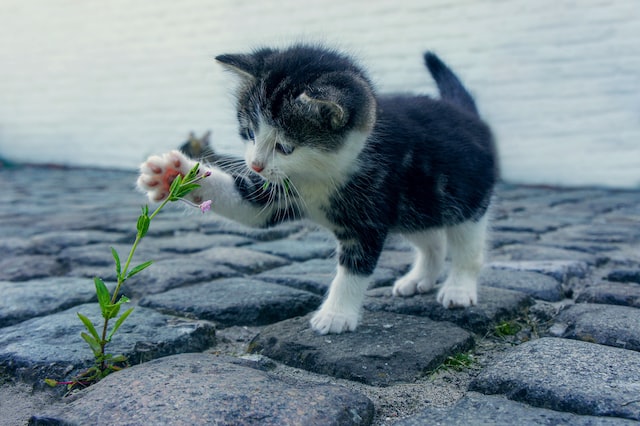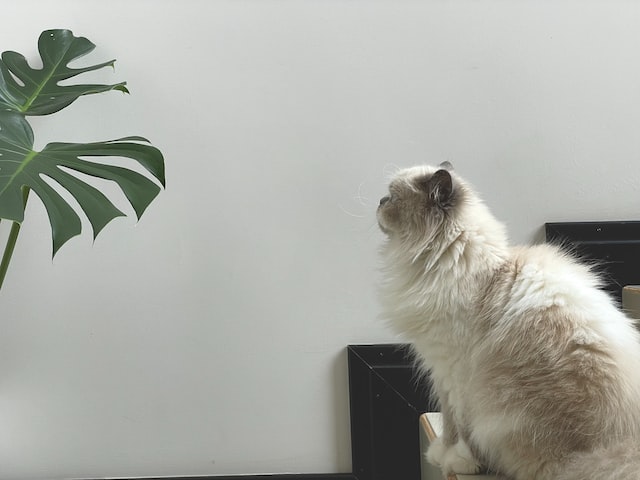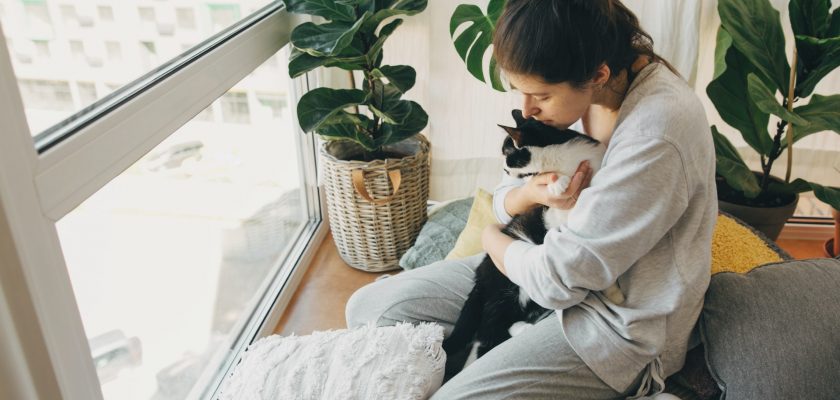When you have cats, keeping them away from certain plants is a necessity. Even if you aren’t a cat lover, there are a few simple steps you can take to keep them from eating your flowers and plants.
Lily of the Valley
Lilies are beautiful, and they are often used in flower arrangements. However, they are not safe for cats, and they can cause severe illness and even death. Here are some ways to keep your cat away from lilies.
If you have a lily growing in your yard or garden, make sure you remove it as soon as possible. Lilies can be toxic to cats and dogs. The plant contains a toxin that can cause acute kidney failure and heart problems.
A lily-of-the-valley – also known as the gloriosa lily – is dangerous for dogs and cats. These flowers contain colchicine, a poison that can damage multiple organs.
Toxic lilies also cause vomiting and diarrhea. Some symptoms of lily poisoning in cats include lethargy, loss of appetite, and seizures. Depending on the severity of the toxin, the animal may suffer severe kidney failure, respiratory issues, and cardiac arrhythmias.

Photo by Dim Hou on Unsplash
Although some lilies are considered non-toxic, you should still avoid them. All parts of the lily plant contain toxins, so it is important to remove it as soon as possible.
Lilies that are scented can be especially dangerous to cats, as they contain pollen. They can also contain insecticides that are harmful to cats. If you are worried about your cat being exposed to these plants, take it to the veterinarian right away.
Another way to keep your cat away from lilies is to keep them out of the house. There are many other plants that have the same name as lilies, but are not as toxic.
If your cat is showing signs of illness after ingesting a lily, see a vet right away. This is important because it can help to ensure a successful outcome.
Rosemary
There are many ways to keep cats away from your garden. Some of them are purely human-centric, while others are more technical. In this guide we’ll look at how to make the most of rosemary to keep your furry friends happy and out of harm’s way.
The rosemary plant has a lot of uses, from food to medicine. Its fragrance has been used in perfumes, cosmetics and aromatherapy for hundreds of years. Rosemary is also a great insect repellent.
Aside from its smell, rosemary has many other benefits, such as anti-fungal properties. For this reason, many people choose to grow rosemary in their gardens.
Rosemary has been around for centuries, and is often planted in gardens for its culinary and medicinal properties. When growing this plant, you should be sure to keep the soil in good condition, and that it gets plenty of sunlight. This will help the plant produce large, fragrant leaves.
Another good reason to grow this herb is that it’s a natural cat deterrent. Cats tend to avoid mint and other spikey plants, and the scent of rosemary is enough to put them off.
Cats are highly sensitive to smell, so a strong citrus scent will be a red flag. To get the most out of your herbs, be sure to use them in small doses.
A few herbs that have been proven to work as a cat deterrent are lavender, citronella and mint. Make sure you check their toxicity before using them.
You can also mix a few drops of lemon juice in a spray bottle of water to create a homemade cat repellent. Apply the mixture outside, or inside, to keep your pet out of your flower beds.
Spider Plant
You have to keep your cat safe from the nasties of the world, and one of the best ways to do that is by keeping your pet away from plants that may be hazardous to them. However, as a cat owner, you might find yourself in the unfortunate position of having your pet nibble on a plant that you can’t help but want to save.

Photo by Ignacio R on Unsplash
Fortunately, there are many cat-friendly plants you can put in your home. For example, the spider plant is a fun houseplant that can be enjoyed by both you and your cat. Its yellow-striped leaves are a great way to entertain your feline while also providing a bit of a health boost.
But how can you keep your cat from eating a spider plant? The trick is to be prepared for the moment. If your cat manages to nab a plant, you’ll want to take fast action.
First, you should be aware that spider plants are not all that toxic. They do, however, have some negative side effects, especially if your cat eats too much. A cat that has eaten a lot of spider plant may display a number of symptoms, such as vomiting, diarrhea, and tummy distress.
Second, you should be aware that most cats are not made to digest grass. As such, it is wise to steer clear of introducing your pet to the grassy areas of your home. Instead, consider growing indoor grasses for them to enjoy.
Finally, you should make sure that your cat has a clean litter box. Insecticides used to protect Spider Plants aren’t very cat friendly. This may be particularly true if your pet is declawed.
Lemon-based repellents
There are a number of citrus-based repellents that can be used to keep cats away from your plants. While some citrus oils, like eucalyptus, can be dangerous to cats when used improperly, others, like lemon, can deter cats.
For instance, if you have a cat that likes to chew on your houseplants, you can make a spray using lemon and vinegar. It’s best to use a glass spray bottle because it helps preserve the repellent effect. You can also make a spray with the zest of a lemon and water.
Unlike humans, cats are highly sensitive to smells. So you must be sure to test any formula on a hidden part of your home before applying it. This is especially important if you plan to use it on fabric-covered furniture or anything else that is delicate.
Lemon balm is a safe, natural cat deterrent that is non-toxic. In fact, the ASPCA has approved it for use on indoor plants.
Although citrus-based repellents are effective at keeping cats away from your plants, they do need to be diluted with water. If you want to keep the scent from fading, be sure to shake the bottle before use.
Another good idea is to place a motion detector noise distractor under the plants. When cats detect the noise, they’ll be discouraged from trying to climb the plant. Also, try putting a stone or other large object under the plant to deter cats from digging up the prized plant.
Another great idea is to use used coffee grounds as a cat repellent. Coffee grounds can help fertilize some garden plants, but they can also be a deterrent to slugs.
Regardless of your preferred method, it’s important to make a homemade cat repellent that is safe for your pet. Many people think that citrus is a deterrent, but the truth is that cats do not like the smell.
Cayenne pepper sprays
If you are looking for ways to keep cats away from your plants, there are a number of options. One way to do this is to sprinkle cayenne pepper around your garden. Cayenne pepper contains capsaicin, a compound that causes a burning sensation. Capsaicin is a natural deterrent, and many commercial repellents include this ingredient.
Another method for keeping cats away is by using a spray bottle. You can purchase a commercial cat repellent, or make one yourself at home. To make a homemade spray, you will need to mix water and a base of cayenne pepper.
Cayenne pepper spray is a great, all-natural solution for keeping cats away from your garden. However, there are several things you should know before using it. The first thing you should keep in mind is that it is not a long-lasting product. It is best to apply it on windless days, and reapply as needed. Also, it should be applied to both the top and underside of leaves.
Cayenne pepper is also a great way to get rid of spider mites and lace bugs. While it can cause some pain for cats who accidentally ingest it, it will do little harm to most plants.
It is important to keep in mind that cats are naturally curious. They are prone to digging and burying their poop. When they dig, their poop can be found everywhere. This can cause problems, and can even increase the risk of parasitic infections.
The smell of cayenne pepper can put cats off, so they will avoid the area. You should use gloves when applying it, though. Cats are very sensitive to scents, and cayenne pepper can be a bit harsh on their fur.
